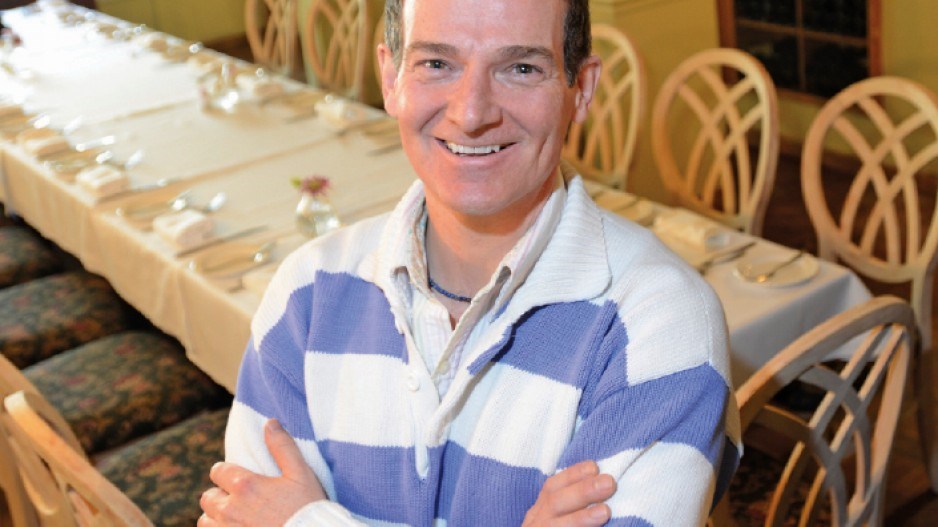Love to eat out? There's an app for that. From food truck finders to fine-dining reservations, tech startups are helping restaurants and hungry diners find each other.
You may have already heard of Chattback and SayZu, which allow clients digital means to critique or compliment a location or event, and Just-Eat.ca, connecting customers with takeout delivery within their geographic location. Now, new arrival iTendr is positioning itself to serve a different market on the dining spectrum: corporate client bookings via executive assistants.
iTendr is a mobile app designed for use by administrative and executive assistants who are regularly tasked with finding suitable locations for a range of corporate dining experiences: breakfast meetings, lunch for 200 with audiovisual hookups or chef's table reservations for out-of-town executives.
Patrick Malone, cofounder and CEO of iTendr, intends his product to serve large corporate bookings, and because of this believes the app picks up where the online restaurant reservation site Open Table left off.
"Our preliminary research showed that 63% of government dining goes to internationally owned hotel locations because of ease," Malone told BIV. "iTendr gives a broader range of price points, and they can request local companies.
"Small niche businesses can now come to market, thanks to a radical redirection of costs four years ago. The capability of cloud-based servers facilitate startups by costing tens of thousands of dollars instead of hundreds of thousands."
The app allows people booking reservations to enter the specifics of the event such as date, time, number of diners, requirements for audiovisual or wireless capability, and preferences such as type of cuisine and geographic location.
iTendr sends a text message to participating venues, which is received via iPhone by the manager, maitre d', etc. They review requests, determine ability to accommodate the booking and send a return text to confirm availability. Ideally, the booker will receive almost instant replies to the single text and be able to make a reservation within minutes.
Phyllis Harbar-Murphy falls within Malone's target market and she's impressed with the functionality of iTendr.
"You can send one text and don't have to keep chasing or calling people. It gives us the power: we're the super-consumer," said Harbar-Murphy, owner of More Than 925, a virtual assistant service. She speaks of behalf of many: in addition to being a virtual assistant, she is the incoming president of the International Association of Administrative Professionals. Many of the Vancouver chapter's 100-plus members recently gathered in Coal Harbour and were present for the official launch of iTendr, timed to coincide with Administrative Professionals Day.
"Executive assistants know the hotels, but many places, we just don't know about. This casts a wider net, while saving up to two hours a day," said Harbar-Murphy. Administrative assistants can spend inordinate amounts of time looking for accommodating venues as well as special experiences for international corporate guests, such as wine tastings or dining at the chef's table.
Foodie lovers
Executive assistants looking for a pick-me-up after taking care of their corporate bosses have a new option to meet their own dining pleasures. Foodie Card is a new entry to the business of beckoning the after-work crowd into restaurants and bars for dinner.
Steve Nikolayev, CEO and development director at Foodie Card, is targeting young (24–35) working professionals who typically eat out several times a week. Nikolayev is working to build a "qualified network" of frequent diners and helping eat out more often.
"We recently targeted Irish-Canadian young professionals through a direct email campaign, and had an 8% sign-up rate," said Nikolayev. Foodie Card does not advertise, instead focusing on email blasts to reach just their main demographic. Members sign up on the Foodie Card website and receive a membership card in the mail. From there, members can visit the site to find restaurants in their area and see what special deals are up for offer.
"It's a simpler way than coupons," said Nikolayev. "It's only restaurants, and they all must offer either 50% off an entree or two-for-one meals."
Restaurants don't pay to be a Foodie Card destination, and they can stipulate additional limitations on their deals, such as limited days of the week or whether reservations are required. Opening up to Foodie Card members lets restaurants set the parameters to boost revenue during slower service periods or seasons.
"We're targeting whoever needs our help. So far, we've got lots of pubs, bars, alcohol-primary places," said Nikolayev, who markets the program to restaurants as a different way to advertise. "We're also getting ethnic cuisine, the mom-and-pop places, and that's cool."




